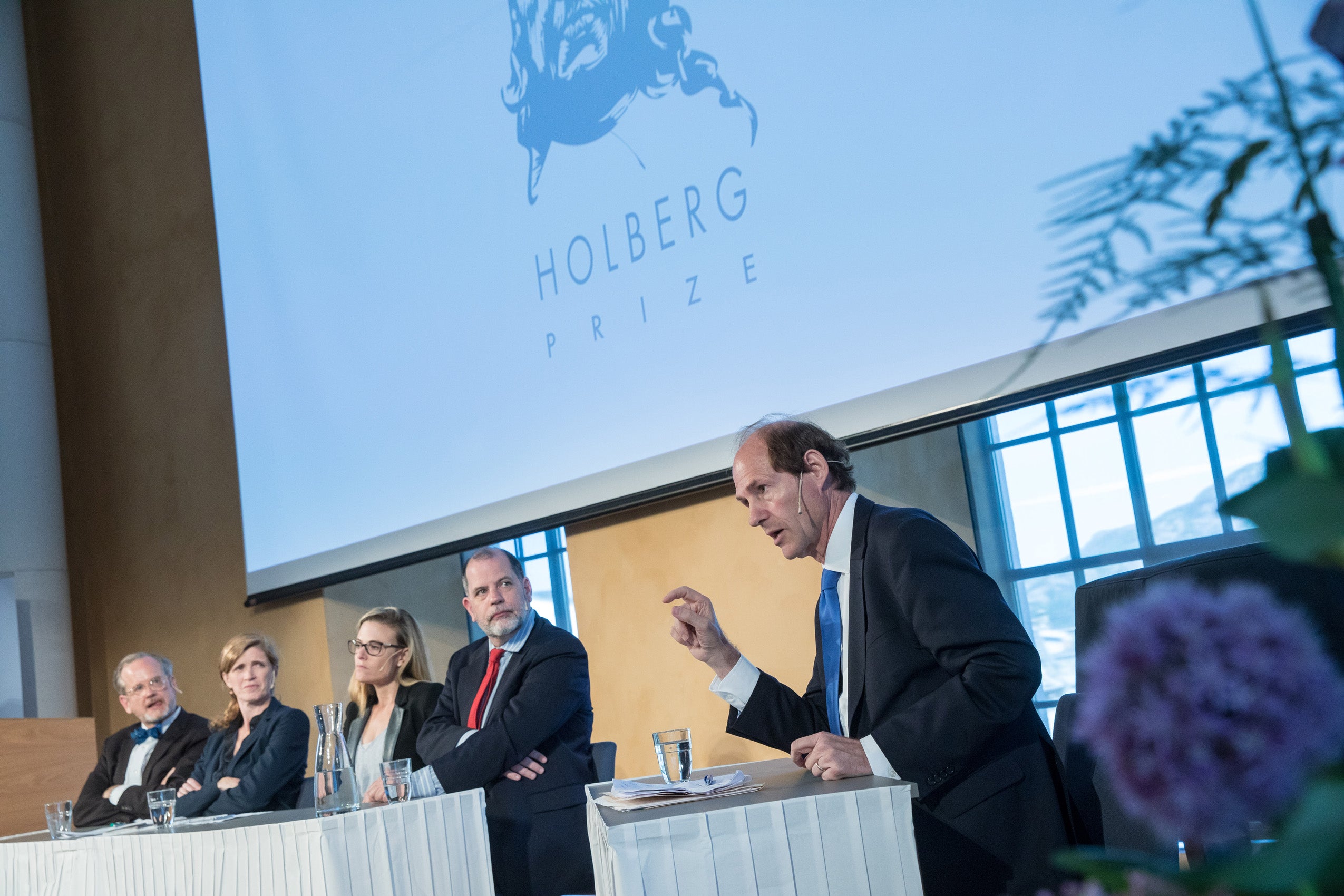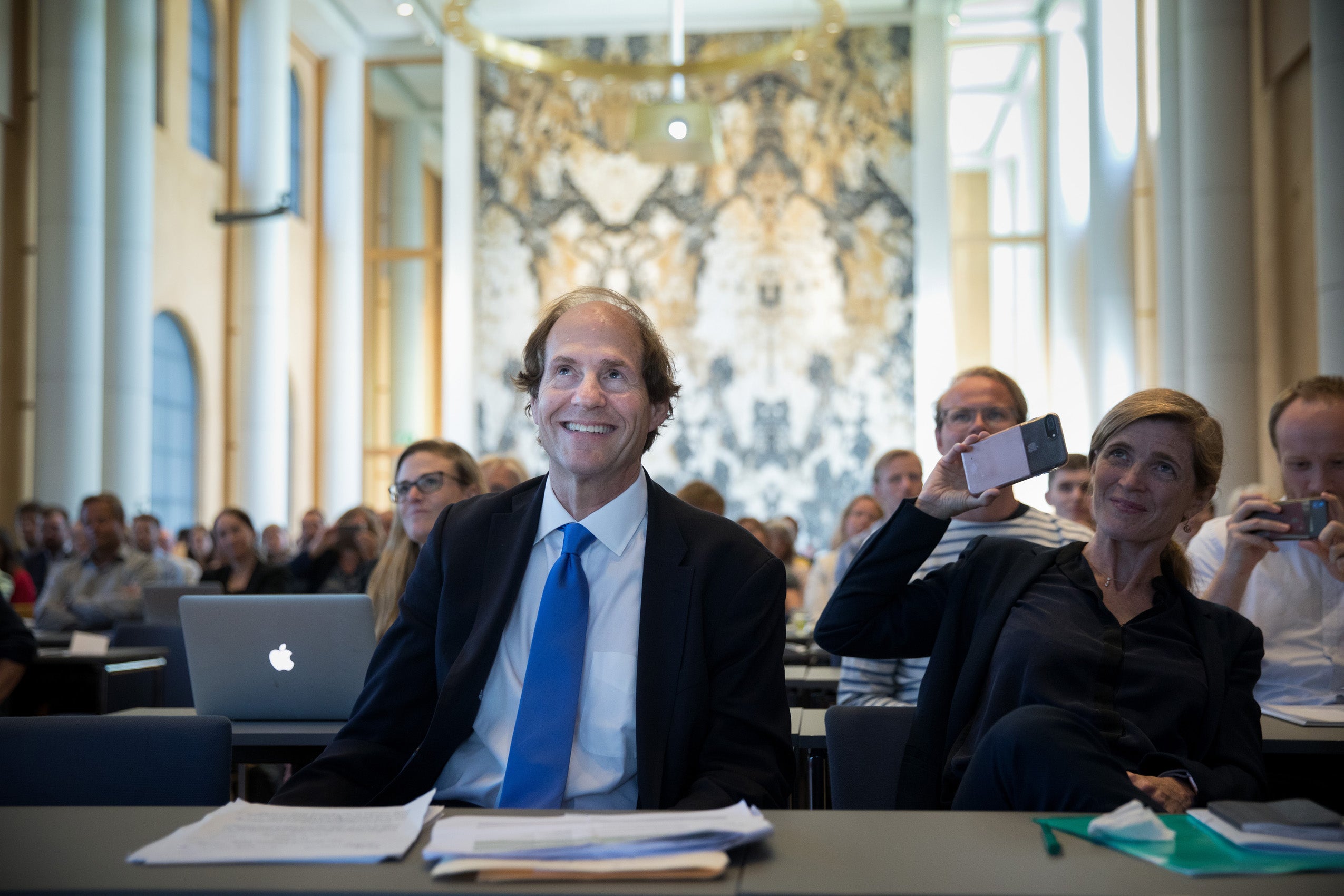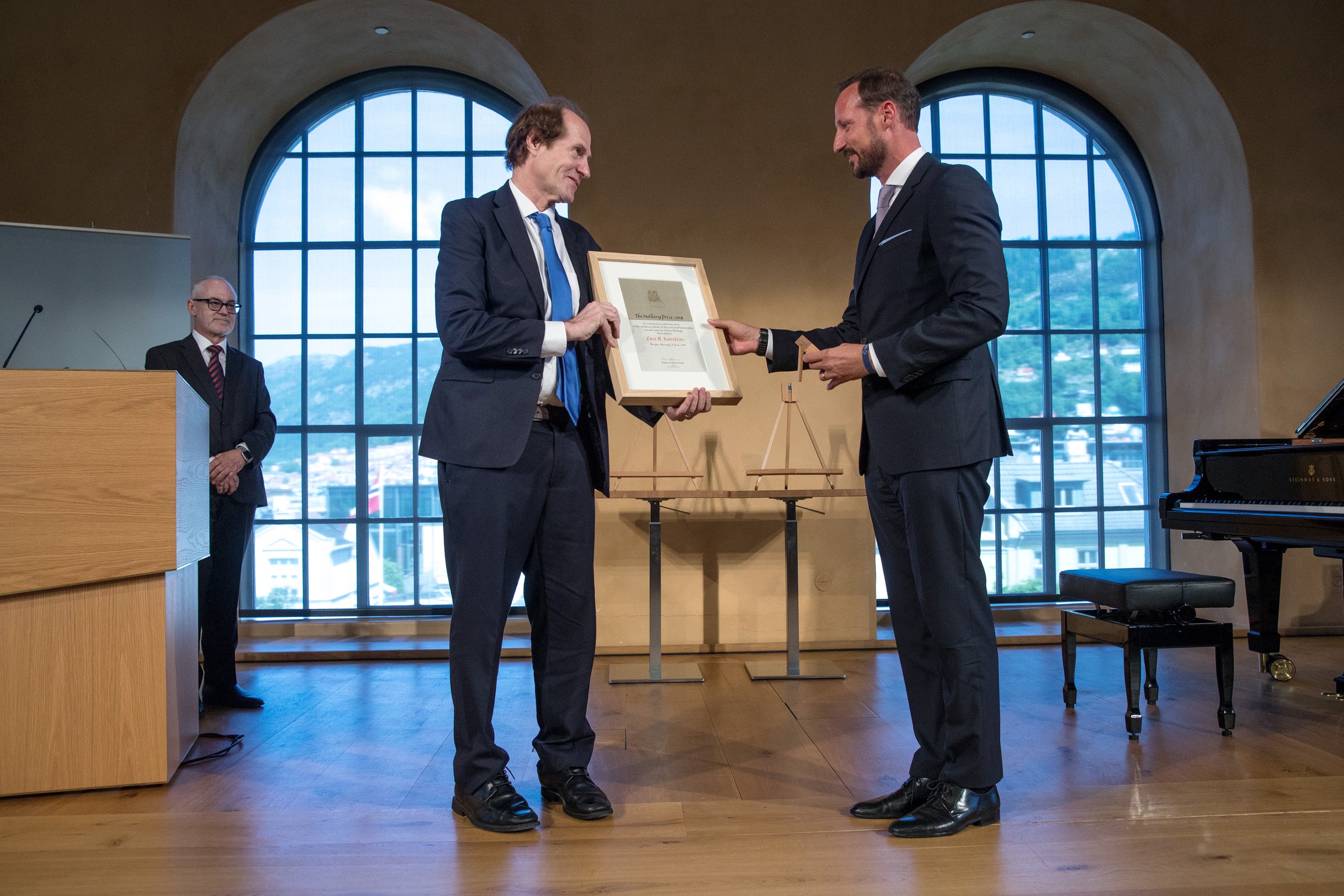Cass Sunstein ’78, the Robert Walmsley University Professor at Harvard University and renowned legal scholar and behavioral economist, received the prestigious Holberg Prize at the University of Bergen, Norway, on June 6. HRH Crown Prince Haakon of Norway presented Sunstein with the prize, which is awarded annually to an outstanding researcher in the arts and humanities.
“Sunstein is one of the great intellectuals of our time,” said Dr. Pratap Bhanu Mehta, chair of the Holberg Committee. “Cass Sunstein’s work is animated by a profound sense of the ways in which human behavior poses a challenge for regulation … in addition to his contribution to the academic field, he has also mastered the art of communicating difficult and important ideas to the public. His work is rigorous, yet accessible, and marked by an extraordinary concern for human welfare as well as a commitment to an enlightened public discourse.”
Sunstein accepted the prize on June 6 in a formal ceremony in Bergen accompanied by his spouse, Samantha Power ’99, professor of practice at HLS and former U.S. permanent representative to the United Nations, and their three children. HLS colleague and friend Professor Lawrence Lessig also attended, and he and Power participated in a related symposium (pictured below).

In his acceptance speech, Sunstein recounted how he—while working on constitutional law in the early 1980s—saw a pattern with respect to legal doctrines and such considerations as equality, liberty, property, religion and freedom of speech: “There was a single foundation for each and every one of them,” he said. “Whenever burdens are to be imposed, or benefits to be given, it must be for some public-regarding reason. In other words, government must offer an intelligible justification for hurting or helping people.”
Sunstein described how this democratic principle connected with human dignity, equality, freedom, as well as “the deepest foundations of the world’s great constitutional orders.” He said: “It is at the heart of the idea of deliberative democracy – a system of government that combines political accountability with an insistence on reason-giving … In deliberative democracies, what matters is not power but what an earlier Holberg Laureate, Jürgen Habermas, calls ‘the forceless force of the better argument.’”
The day before, Sunstein delivered his Holberg Lecture, “Freedom.” In it, he explored the relationship between freedom of choice and human well-being. “My topic is one that has preoccupied lawyers,” he said. “But also artists, poets, and novelists; psychologists and anthropologists and philosophers; neuroscientists and diplomats; doctors and economists.”
Prior to the lecture, Barack Obama ’91 appeared via video with a message of congratulations for Sunstein. Obama said he had known Sunstein since they were both law professors at the University of Chicago. He praised Sunstein’s scholarship and “the staggering breadth of collaborators he has brought along on his intellectual journey.” The sheer number of his partnerships gave rise to a game called “six degrees of Cass Sunstein, making him the Kevin Bacon of legal scholarship, with academics clambering to shrink their Sunstein number to one,” Obama said.


When Obama was elected president, he invited Sunstein to serve as the administrator of the White House Office of Information and Regulatory Affairs. “Together, we introduced the concept of dignity into cold-hearted cost-benefit analysis,” Obama said, adding that Sunstein’s service was marked by decency, respect, curiosity, and an open mind. “It’s an honor to call you a friend, not only because you are a towering intellect, but more importantly because you are a good man.”
Sunstein first joined the HLS faculty in 2008, as the director of its Program on Risk Regulation. He is the founder and director of the Program on Behavioral Economics and Public Policy.
Sunstein has published 48 books and hundreds of scholarly articles. In 1998, he broke new ground, together with Richard Thaler and Christine Jolls, with the paper “A Behavioral Approach to Law and Economics,” which initiated a new academic field called “behavioral law and economics.” Sunstein and Thaler followed up with the best-selling book “Nudge: Improving Decisions about Health, Wealth, and Happiness” in 2008. The book discusses how public and private organizations can help people make better choices in their daily lives, and it helped popularize and cement the influence of behavioral law and economics.
Describing the key purpose of his work, Sunstein said: “I have long been concerned with how to promote enduring constitutional ideals—freedom, dignity, equality, self-government, the rule of law—under contemporary circumstances, which include large bureaucracies that sometimes promote, and sometimes threaten, those ideals. The main goal has been to deepen the foundations of democratic theory, for the modern era, and to understand, in practical terms, how democracies might succeed in helping to make people’s lives better—and longer.”
